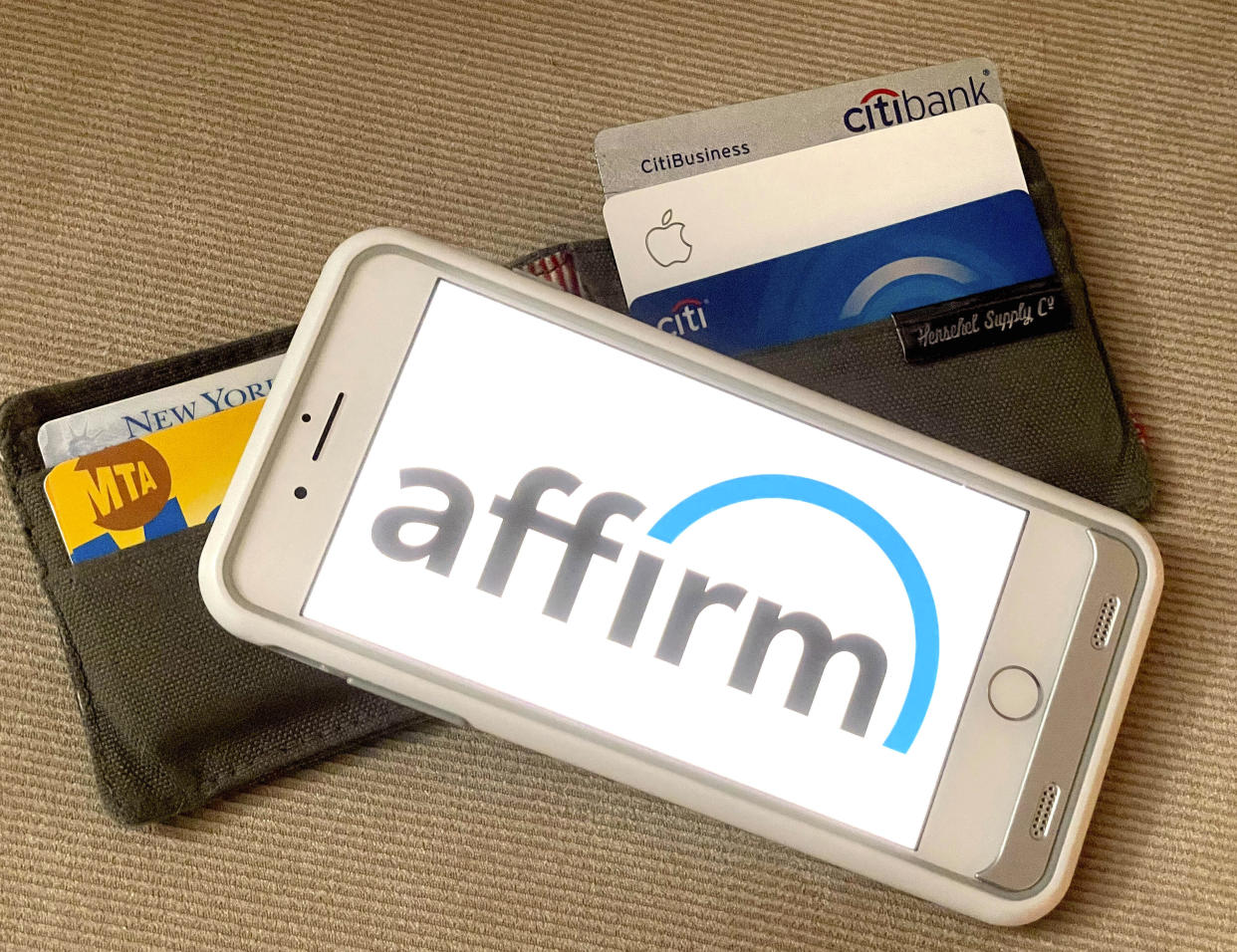‘Buy now, pay later’ more 'consumer-friendly' than traditional credit cards: BofA
Bank of America says the recent probe by a U.S. consumer watchdog into "buy now, pay later" (or BNPL) services is “potentially overblown.”
Analysts from BofA in a note out Monday reiterated their Buy rating for Affirm (AFRM), one of the BNPL companies whose shares slid last week after the Consumer Financial Protection Bureau (CFPB) launched an inquiry into the growingly popular industry on Thursday.
In the note, Bank of America said Affirm seems “reasonably well-positioned among BNPL players to withstand increased regulatory scrutiny,” indicating the firm, unlike its competitors in the sector, does not charge the late and reactivation fees flagged in the CFPB’s investigation. The split pay loans also highlighted by the agency as an area of concern comprise less of Affirm’s gross merchandise volume than the percentage for other providers, analysts emphasized.
“We view the reaction as potentially overblown and are reiterating our Buy rating on AFRM,” BofA said. “We believe BNPL is a more consumer-friendly product than traditional credit cards, which carry deferred interest and late fees.”
Other industry experts have argued that buy now, pay later instruments could be a better, cheaper alternative to credit cards — but need stronger regulation and consumer education.
“Unfortunately, a growing body of research shows that a good percentage of users do not use BNPL wisely,” Sheila Bair, former chair of the FDIC and a Yahoo Finance contributor wrote recently. “Because decision-making comes at point-of-sale, users do not always take time to reflect on whether they can afford the repayment obligation they are incurring.”
Buy now, pay later programs allow shoppers to defer payments into interest-free monthly installment plans, though sometimes with hefty late fees. The CFPB requested information from Affirm and other BNPL providers Afterpay, Zip, PayPal and Klarna on concerns over how quickly consumers accumulate debt using the instruments, an absence of regulatory disclosures, and the lack of clarity around how user data is harvested.
“Buy now, pay later is the new version of the old layaway plan, but with modern, faster twists where the consumer gets the product immediately but gets the debt immediately too,” CFPB Director Rohit Chopra said in a statement.
The announcement sent shares of Affirm down more than 10% last week. The stock closed down 1.42% to $97.37 on Monday.

“While the timing of the request for information was somewhat of a surprise, the request itself was not, as we believe the CFPB has been under some pressure from Congress and consumer advocates to take some form of action,” BofA said.
Citing checks with regulatory experts, Bank of America predicted that despite uncertainty around the outcome of the probe, any potential regulatory changes would be a lengthy process requiring significant resources.
The BNPL firms under scrutiny have until March 1 to respond to the CFPB’s request, and BofA estimated evaluating the data could take several months. The agency may use information from its findings in a variety of ways, from publishing a white paper summary, to a basis for new rule-making seeking to modify current practices, analysts said.
The research team also stated in its note that Affirm’s position as the “partner of choice” among mega merchants such as Amazon, Walmart, and Target also help position the company as a “long-term beneficiary in the BNPL category.”
“We do not expect incremental regulatory action to stymie the growth of BNPL as a payment choice,” Bank of America said. “Consumer and merchant adoption is rapidly increasing.”
Alexandra Semenova is a reporter for Yahoo Finance. Follow her on Twitter @alexandraandnyc
Read the latest financial and business news from Yahoo Finance
Follow Yahoo Finance on Twitter, Instagram, YouTube, Facebook, Flipboard, and LinkedIn
